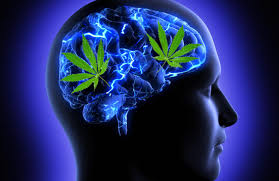
Breaking News
 Israeli Prime Minister, Netanyahu will meet with Trump on Wednesday and deliver instructions...
Israeli Prime Minister, Netanyahu will meet with Trump on Wednesday and deliver instructions...
 Elon Musk Offers To Cover Legal Bills Of Epstein Survivors Who Identify New Names
Elon Musk Offers To Cover Legal Bills Of Epstein Survivors Who Identify New Names
 Red Alert Emergency Broadcast! Tune In NOW As Alex Jones Analyzes The Insane Revelations...
Red Alert Emergency Broadcast! Tune In NOW As Alex Jones Analyzes The Insane Revelations...
 330 gallons of sulphuric acid was purchased for Epstein Island on the day the FBI opened...
330 gallons of sulphuric acid was purchased for Epstein Island on the day the FBI opened...
Top Tech News
 Drone-launching underwater drone hitches a ride on ship and sub hulls
Drone-launching underwater drone hitches a ride on ship and sub hulls
 Humanoid Robots Get "Brains" As Dual-Use Fears Mount
Humanoid Robots Get "Brains" As Dual-Use Fears Mount
 SpaceX Authorized to Increase High Speed Internet Download Speeds 5X Through 2026
SpaceX Authorized to Increase High Speed Internet Download Speeds 5X Through 2026
 Space AI is the Key to the Technological Singularity
Space AI is the Key to the Technological Singularity
 Velocitor X-1 eVTOL could be beating the traffic in just a year
Velocitor X-1 eVTOL could be beating the traffic in just a year
 Starlink smasher? China claims world's best high-powered microwave weapon
Starlink smasher? China claims world's best high-powered microwave weapon
 Wood scraps turn 'useless' desert sand into concrete
Wood scraps turn 'useless' desert sand into concrete
 Let's Do a Detailed Review of Zorin -- Is This Good for Ex-Windows Users?
Let's Do a Detailed Review of Zorin -- Is This Good for Ex-Windows Users?
 The World's First Sodium-Ion Battery EV Is A Winter Range Monster
The World's First Sodium-Ion Battery EV Is A Winter Range Monster
 China's CATL 5C Battery Breakthrough will Make Most Combustion Engine Vehicles OBSOLETE
China's CATL 5C Battery Breakthrough will Make Most Combustion Engine Vehicles OBSOLETE
Harvard Study: Smoking Cannabis Actually Improves Brain Function

Preliminary findings from McLean Hospital, Harvard Medical School, and Tufts University indicate that pot actually improves cognitive performance.
Don't believe the hype – cannabis is not a gateway drug, it is a medicine. From helping people naturally relieve their anxiety to literally curing cancer (over 100 studies have validated this), the plant is incredibly therapeutic. Because it is classified as a Schedule 1 drug, however, marijuana is still illegal in many U.S. states.
Fortunately, new findings from a study published in Frontiers In Pharmacology seem to support arguments for its decriminalization. Preliminary investigations by medical researchers from McLean Hospital, Harvard Medical School, and Tufts University indicate that pot actually improves cognitive performance.
For the study, entitled "Splendor in the Grass? A Pilot Study Assessing the Impact of Medical Marijuana on Executive Function," behavioral scientists tracked 24 certified medical marijuana patients over a three-month dosing period. The patients were repeatedly measured for cognitive proficiency through a series of intelligence tests, including the STrrop Color Word Test and Trail Making Test.
Lead researcher, Staci Gruber, is the director of the Marijuana Investigations for Neuroscientific Discovery (MIND) program at McLean Hospital. As KINDLAND reports, her initial report is positive. The first benefit reported is that medical marijuana led to patients excelling at brainteasers with enhanced speed and accuracy.
Says the McLean Hospital report:
"After three months of medical marijuana treatment, patients actually performed better, in terms of their ability to perform certain cognitive tasks, specifically those mediated by the frontal cortex," explained Gruber.
Study participants also reported improvements in their specific clinical conditions, sleep, and overall health as well as a decreased use of conventional medications, particularly opiates.
"We saw a 42 percent reduction in opioid use," reported Gruber. "This is significant, particularly for those of us in Massachusetts and other areas of the country where the opioid epidemic is ravaging so many. This preliminary finding certainly warrants deeper and broader investigation."



